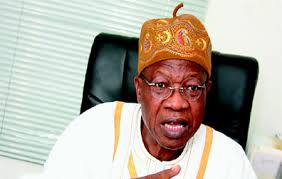FG Will Continue To Fight Illicit Trafficking In Cultural Property – Minister
The Minister of Information and Culture, Alhaji Lai Mohammed, has promised that the Federal Government will continue to fight against the illicit trafficking in Cultural Property.
Declaring open an exhibition of repatriated Nigerian artefacts in Lagos on Thursday, the Minister challenged the National Commission for Museums and Monuments (NCMM) to double its efforts in checking the illicit trade in cultural property.
”It is my wish that the NCMM will begin to look at means and opportunities to re-invigorate its export and clearance permits operations and even devise other methods of checking the illicit trafficking in cultural property.
”I was reliably told that there was the system of taking the pictures of all the objects leaving the country and the passport numbers of those exporting non-antiquities out of the country. I think the NCMM should go back into all of the systems that can be used to stop, check and stem the illicit trafficking in cultural property of Nigeria,” he said.
Alhaji Mohammed also urged the NCMM, the Nigeria Customs Service and other law enforcement agencies to be more vigilant especially at the nation’s sea ports, airports well as land borders, to check these abuses and illicit trade.
He thanked the Ambassadors and Cultural Attaches of the United States of America, France, Canada, Switzerland and South Africa, where the artifacts were intercepted, and appeal to them not to relent in their efforts in that regard.
”I must thank you the more for respecting the International Laws and in particular the respect of the Red-List Agreement of 1997 that has declared the export of these Nigerian cultural property illegal,” the Minister said.
He gave the assurance that Nigeria will fully domesticate the provisions of the UNESCO 1970 Convention on the Means of Prohibiting and Preventing the Illicit Import, Export and Transfer of Cultural Property, which was ratified by Nigeria on 24 Jan. 1972 and came into force three months later.





